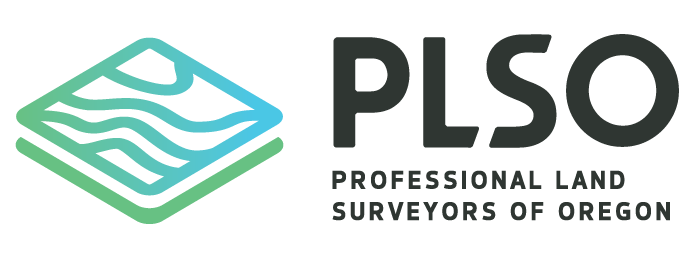Legislative Update from Dave Williams:
I am pleased to report that PLSO had a very successful 2021 Legislative session. Both Bills we sponsored were signed by the Governor and become effective on January 01, 2022. HB2312 – Amends ORS 92.017 regarding Judicial Property Line changes. Provides that lawful units of land whose property lines are relocated by certain judgments remain lawful units. Prohibits requiring additional validating procedures or denying permits because of judicial boundary changes. HB2884 – Amends ORS 92.176 extending the time for recording partition plat incorporating city or county’s permit validating a unit of land from 90 days to 365 days.
We supported legislation, HB 3082 - that eliminates the inconsistency between minimum thresholds that require a competitive bid process in ORS 279B (goods and services) and ORS279C (public improvements/construction services). It amends ORS 279C.335 raising the contract price at which public improvement contract solicitations are exempt from competitive bidding requirement from $5,000 to $10,000. Additionally, we supported HB213 – which voids certain provisions in construction agreement requiring design professional to defend or indemnify against certain claims except to extent design professional’s negligence caused indemnitee’s damages. Provides that design professional may not be held liable for attorney fees incurred to defend claims against indemnitee before design professional’s fault is determined. We will be looking to future Sessions to advance this legislation.
I cannot overstate how important the efforts of our Lobbyist, Darrell Fuller, were to the success of this legislative session. Without him, navigating the legislative process, especially during COVID, would be immeasurably more difficult.
At last weeks Board Meeting we looked into an issue reported to me by Ryan Erickson regarding certain property line adjustments in Lane County. The substance of the email is as follows:
The PLA in question was done in 2003 and at the time Lane County did not regulate property line adjustments so they would just tell folks to comply with ORS 92. The PLA in question involved 3 maybe 4 property lines and the adjustment was done in one PLA deed. Apparently, there have been recent LUBA decisions that say adjusting multiple lines in one deed is incorrect. This causes Lane County to issue the determination that all these properties are not legal lots. Basically there is no remedy other than possibly trying to unwind everything back 20 years and start over again with multiple land use applications and multiple owners working together to “fix” this.
The Board directed the Legislative Committee to look into this problem, find out if this is an issue in other areas of the State and determine if a legislative fix is the best course of action. I will be contacting the committee members and requesting that they bring this to the attention of their chapters for discussion.
Finally, I would like to begin the search for the next Legislative Chair. I accepted this position while still actively running the company I cofounded in the late 1980’s. Five years into retirement I find myself increasingly distant from the issues that once were in the forefront of my day-to-day life. I believe the organization would benefit from someone younger and more engaged in the everyday details of the surveying profession. I encourage anyone interested in this position to contact me and I will outline the duties and time commitments and benefits related to being the chair.

